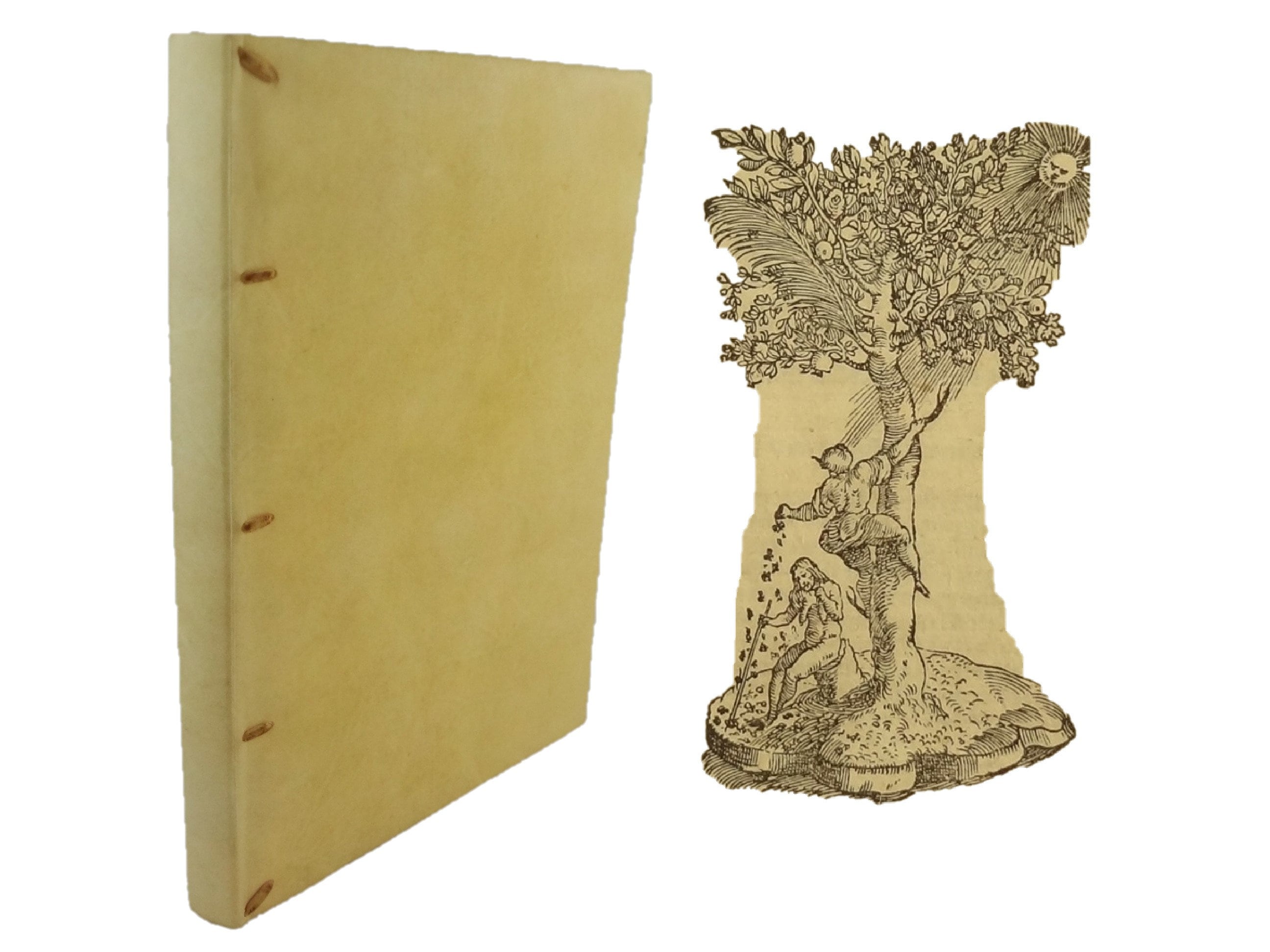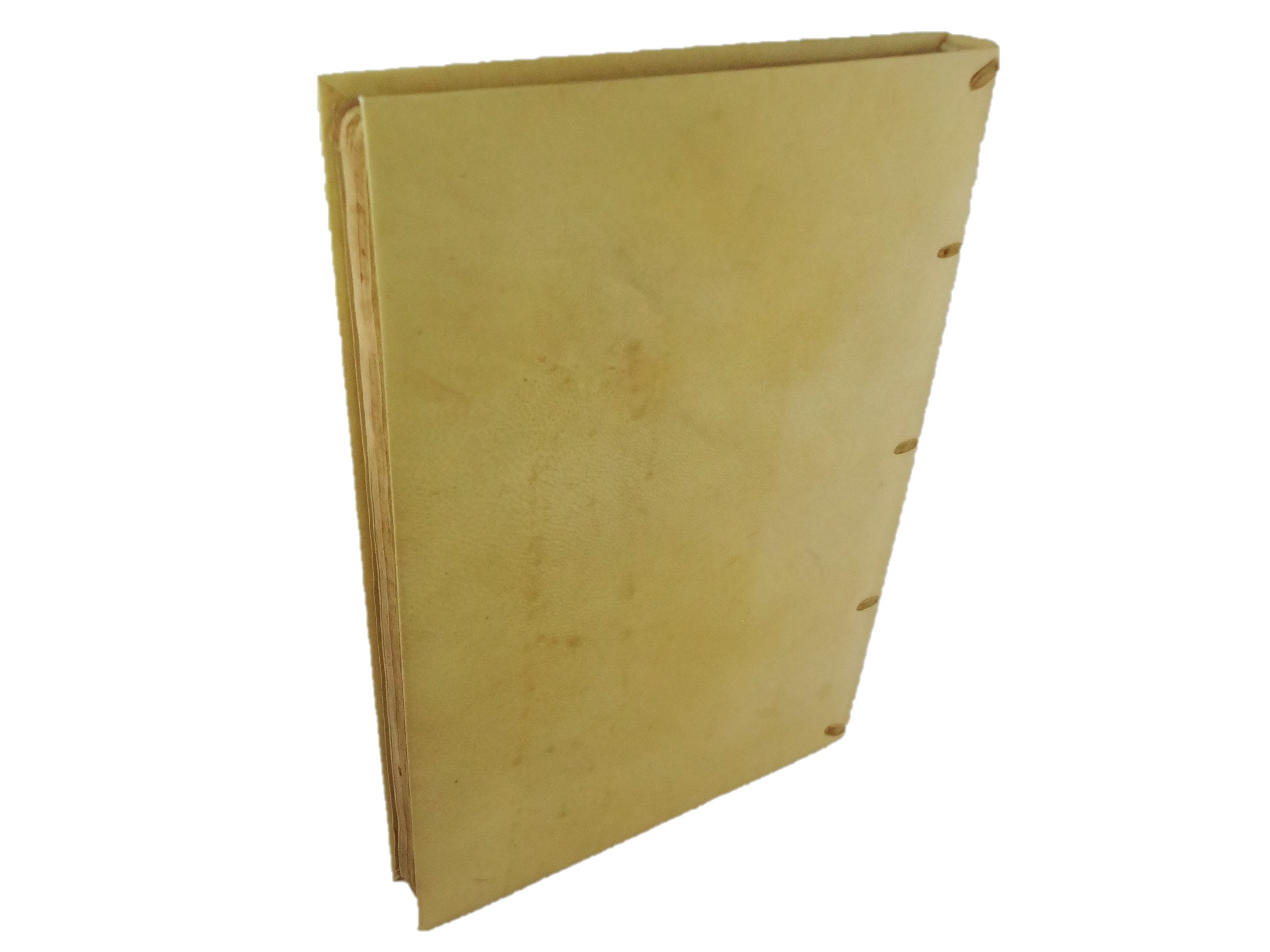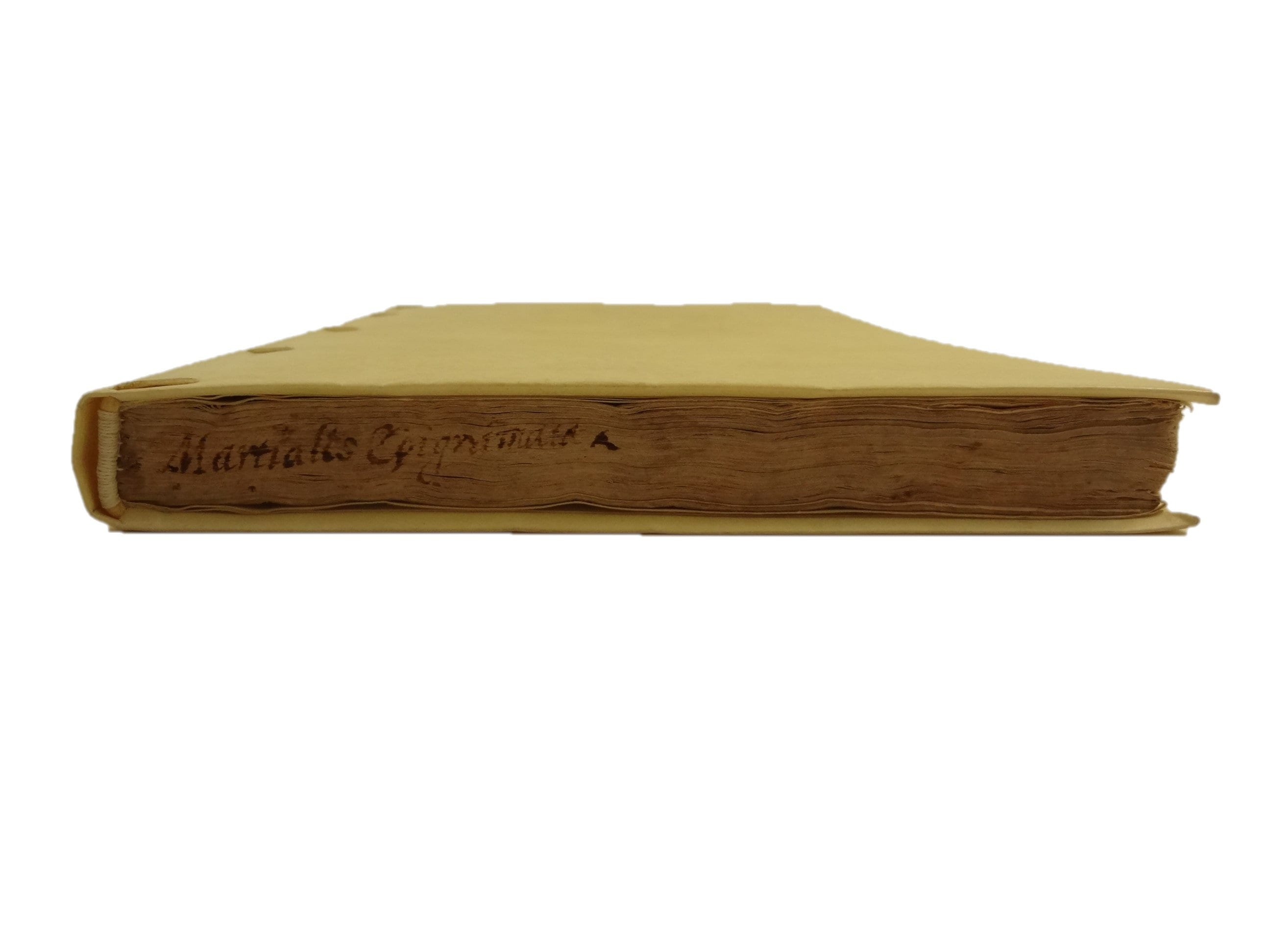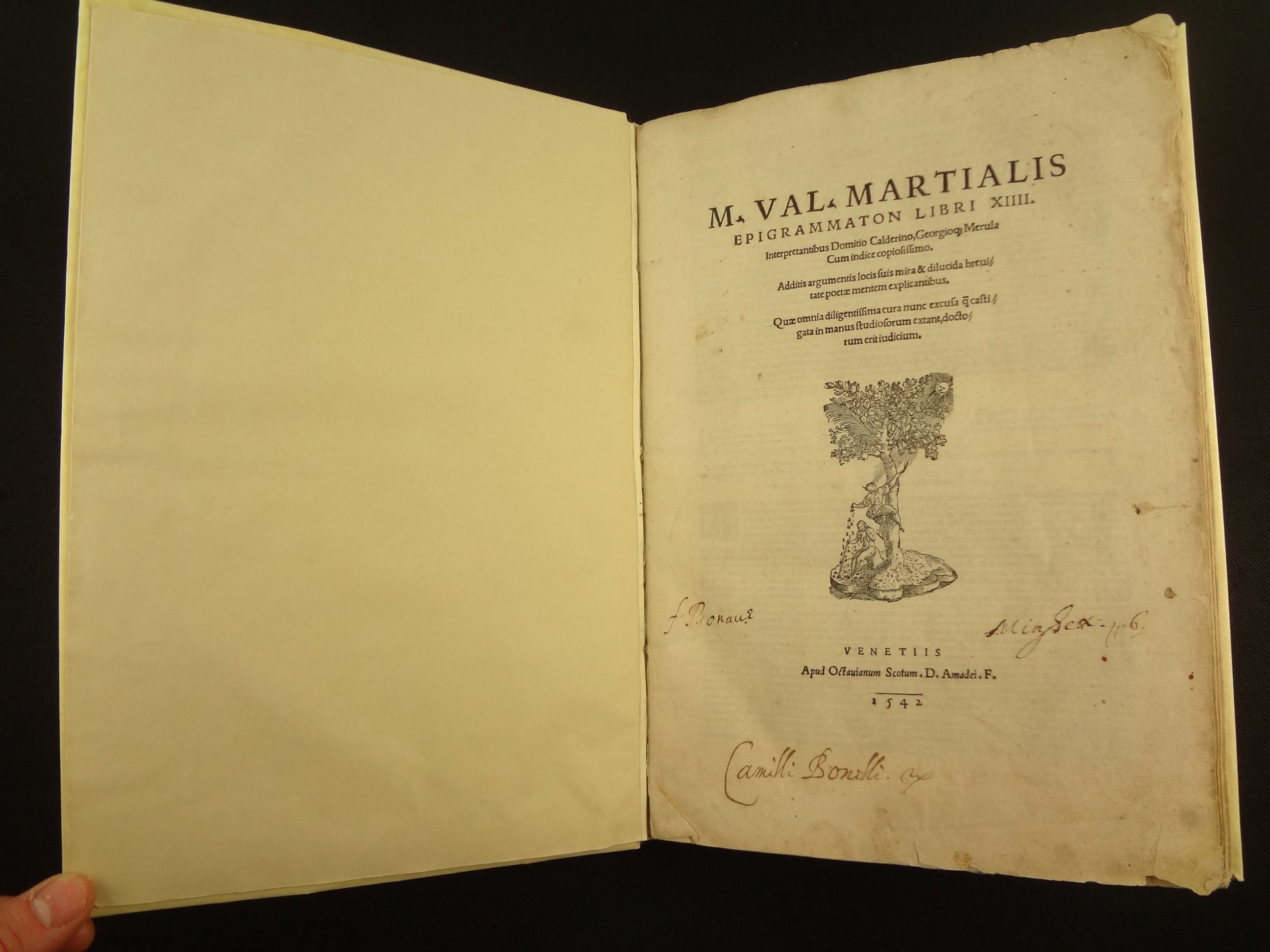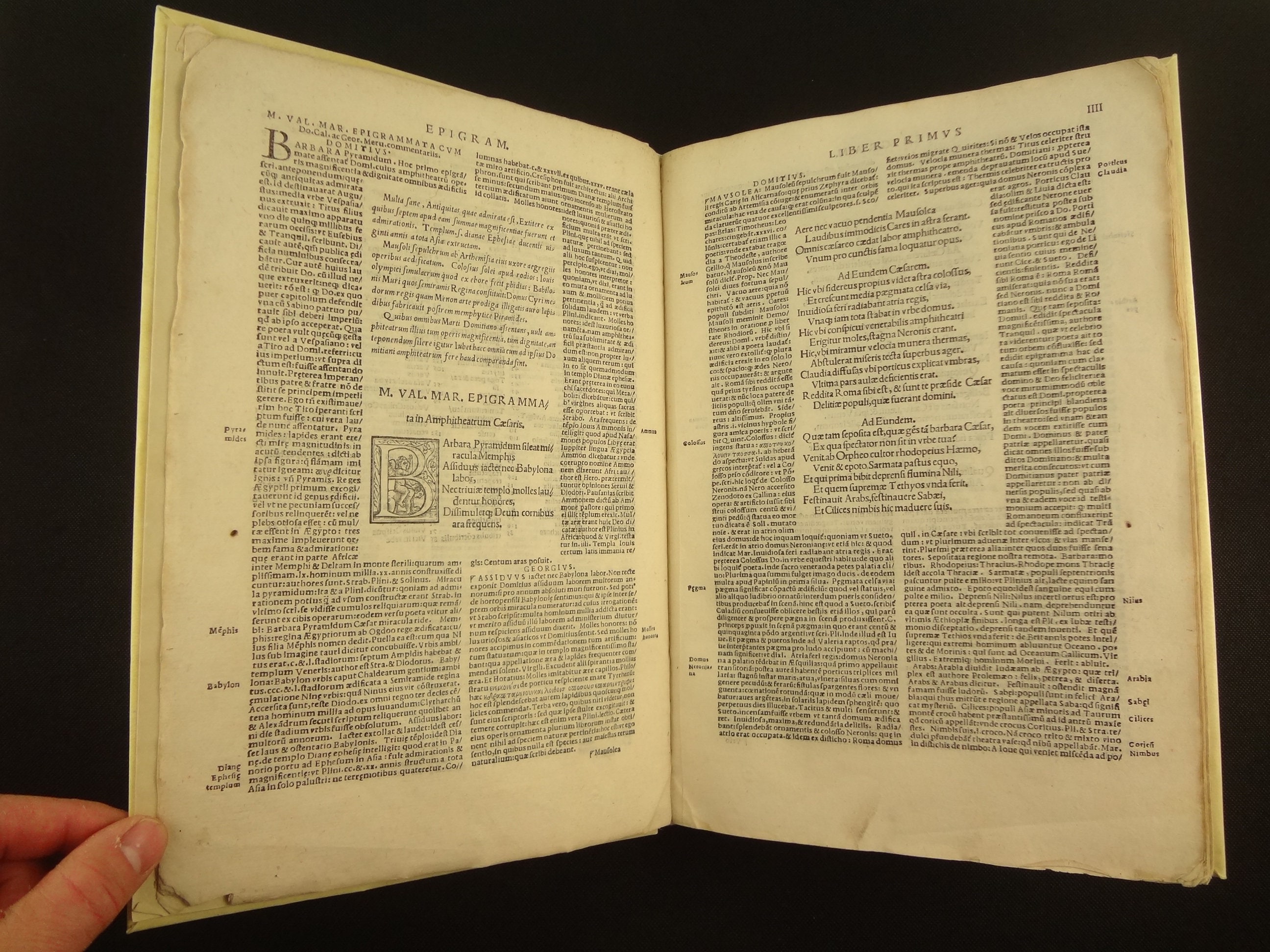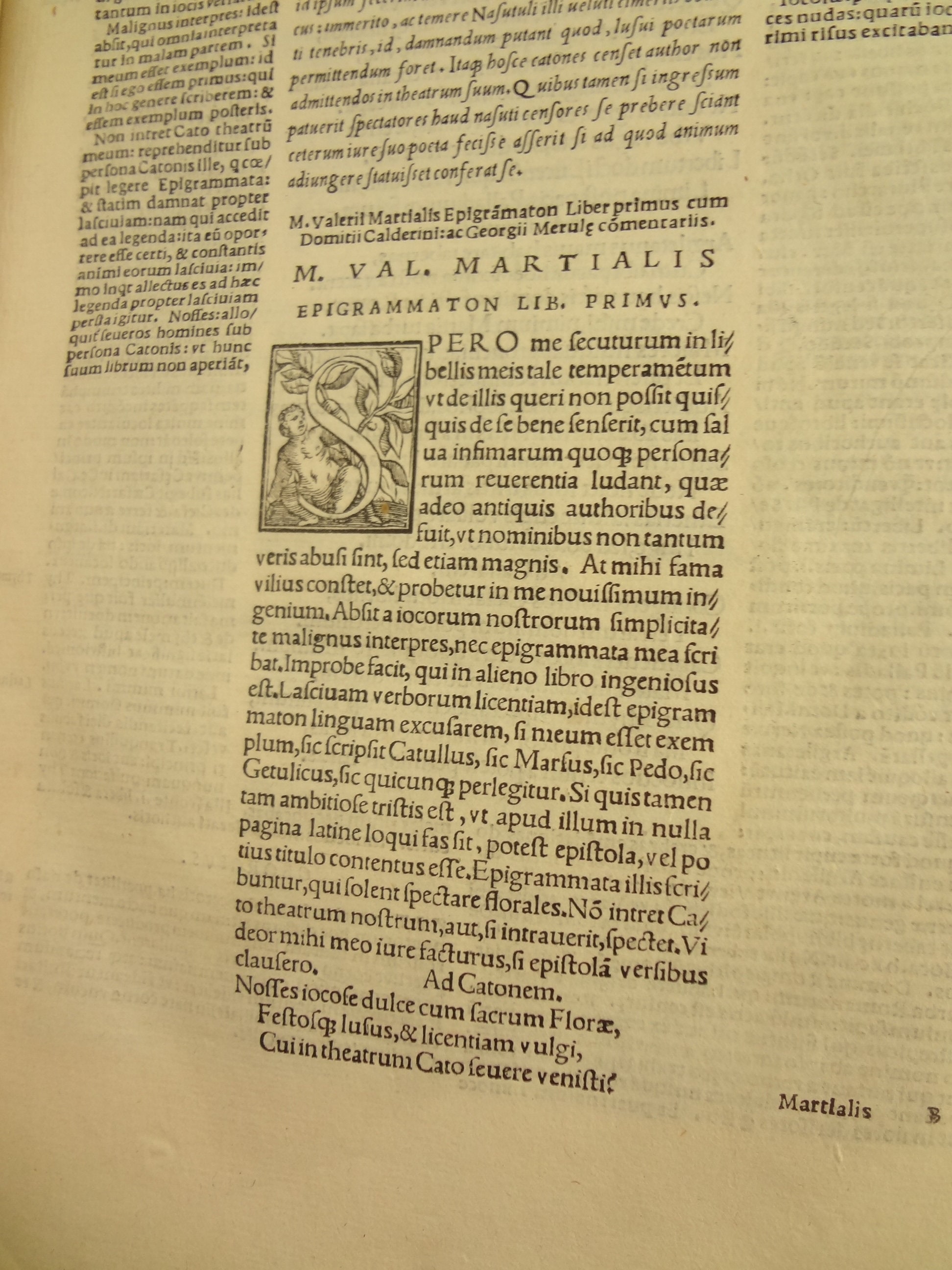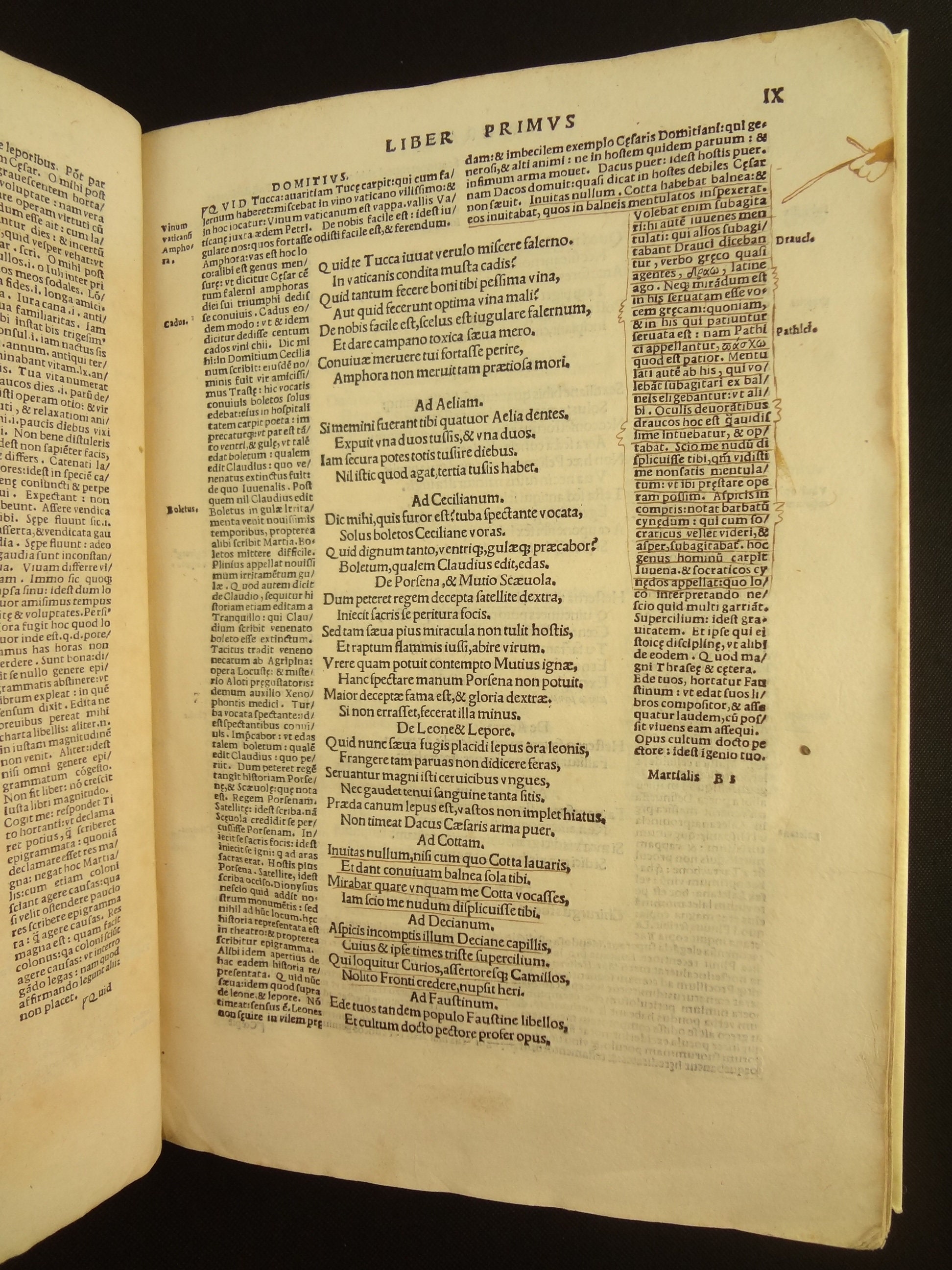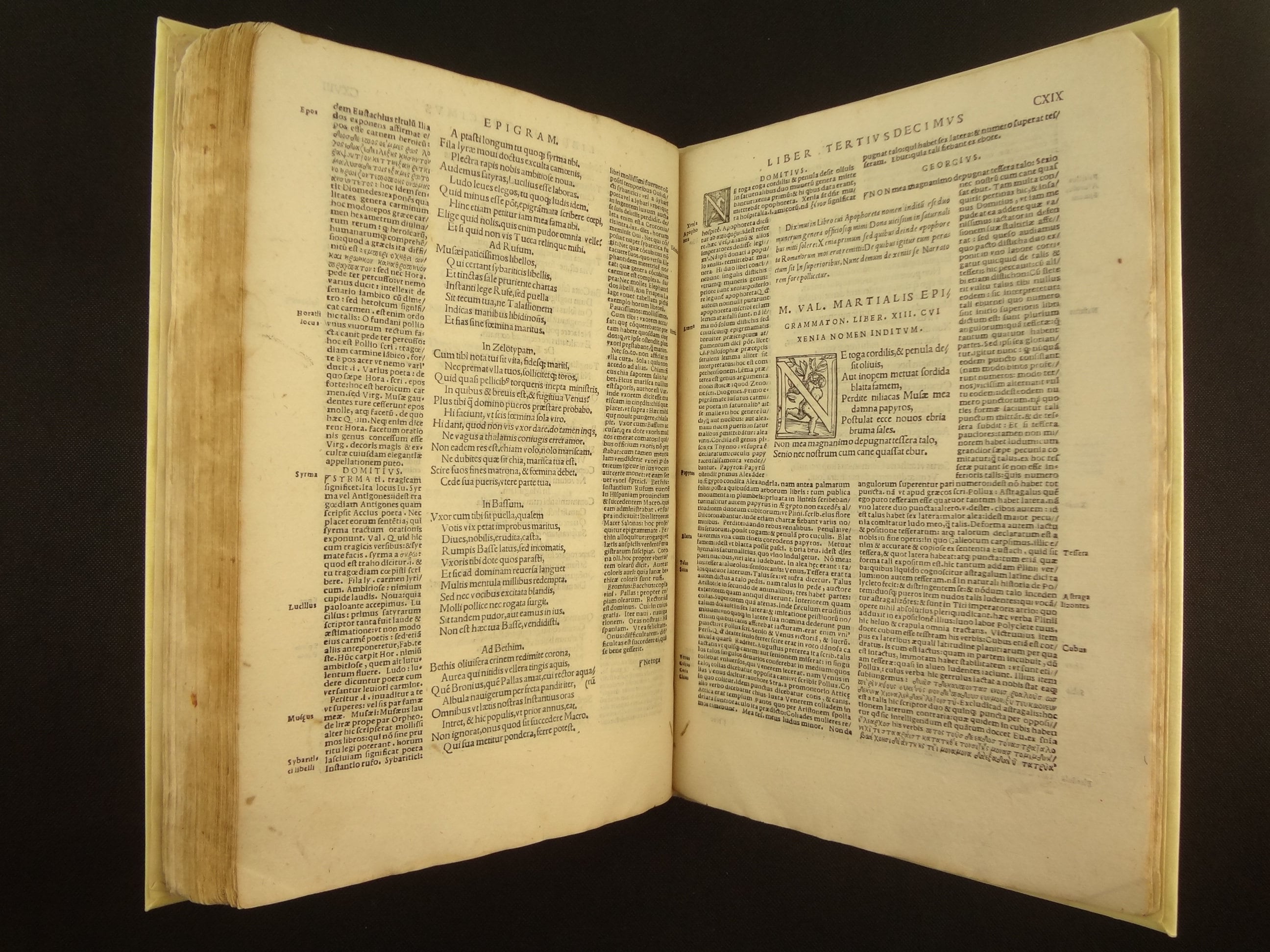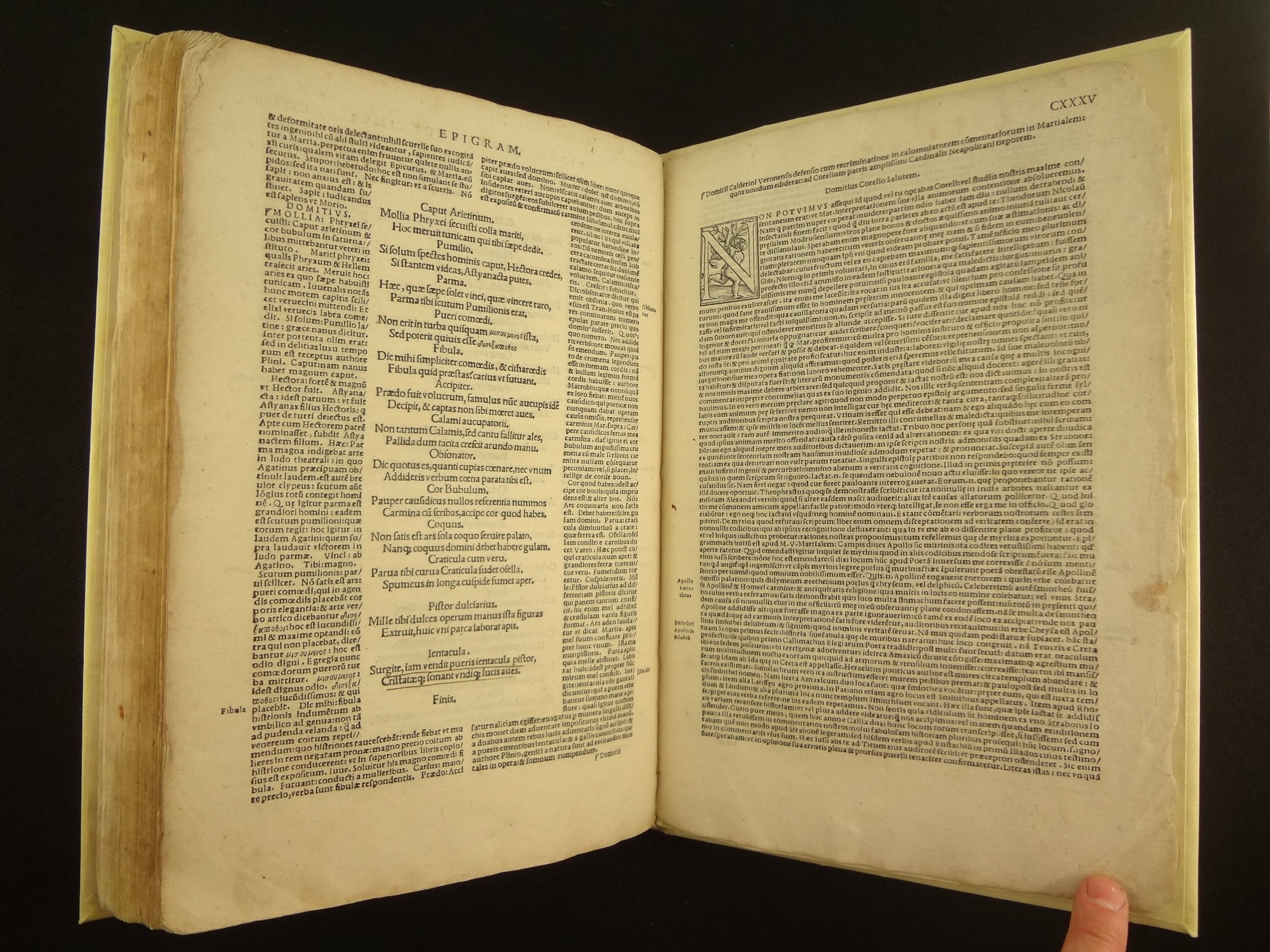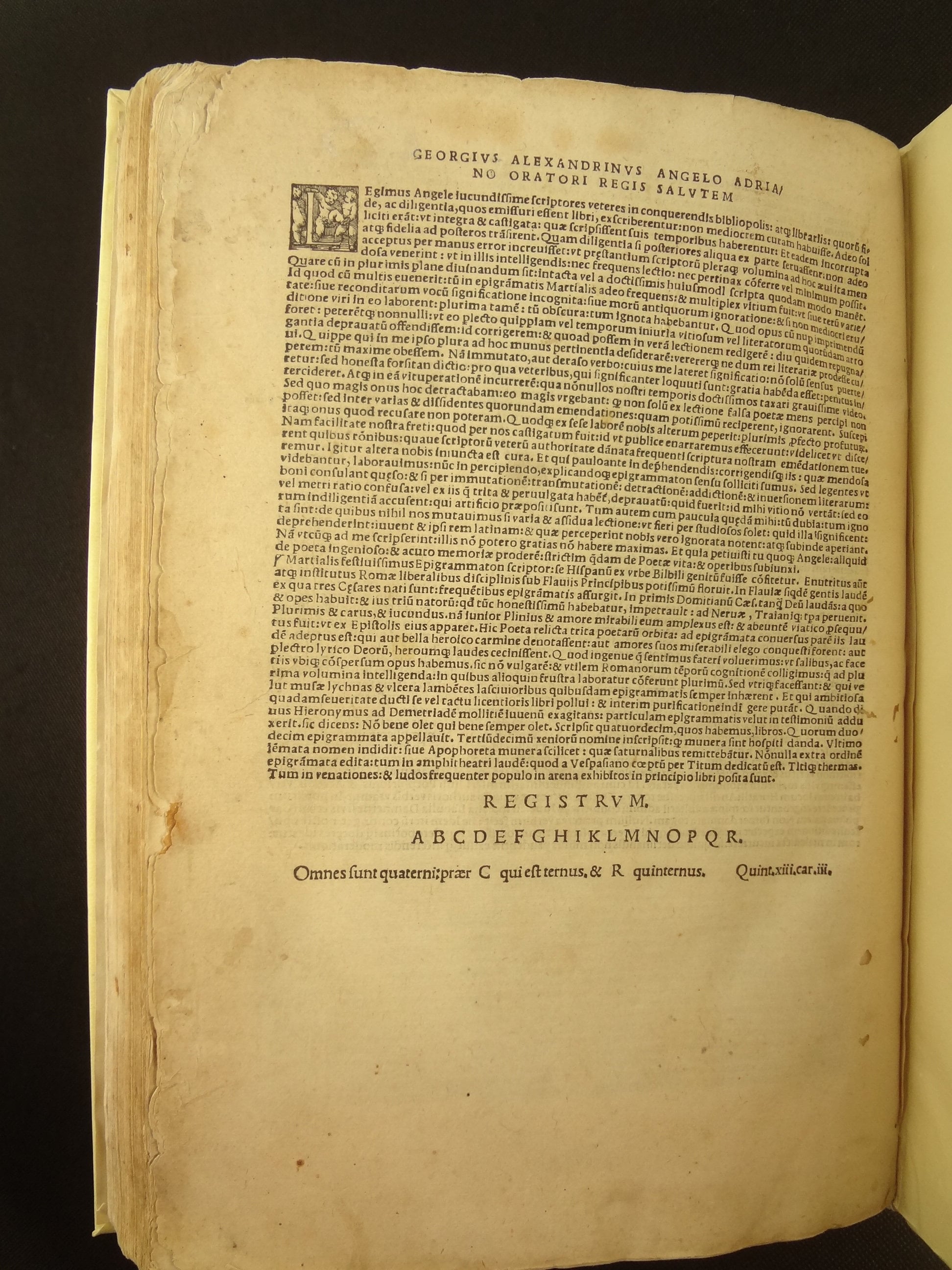A later edition of the folio Venetian printings of Martial's Epigrammaton, with the commentary of both Domizio Calderino and Giorgio Merula.
A fascinating study in typology, and the development of editions, you can watch this printing evolve by reviewing the very similar earlier editions (scanned into Google Books), starting with the 1495 Martialis cum Duobus Commentis (printed by de Pensis), then the 1510 Martialis (printed by Matuanum) and then the 1521 edition of Fontaneto (which is nearly exact to our 1542 edition, the 1542 with some minor updates to initials, dates, etc.). Our 1542 edition even makes reference to the editio princeps, printed by Pincius in 1491, with a "Pincius ad Censorem" on the leaf A3.
Also, testifying of the historicity of this edition, the title is written in manuscript on the bottom edge; a remnant from when books weren't stored with their spines outwards. It also testifies that the book hasn't been heavily trimmed in rebinding. And, on the title page, the 16th century name "Camilli" is inscribed. Within the work you'll find manicules pointing to several sections, an early method of drawing attention to important passages not largely used since the 16th century.
While the printing, and signs of use, speak to the 16th century, the binding is fresh and attractive, ready to serve many future generations.
About the Epigrammaton
An epigram is a brief, interesting, memorable, and sometimes surprising or satirical statement.
Marcus Valerius Martialis (circa 50-100 AD), was a Roman poet from Hispania (the Iberian Peninsula) best known for his twelve books of Epigrams, published in Rome between AD 86 and 103, during the reigns of the emperors Domitian, Nerva and Trajan. In these short, witty poems he cheerfully satirizes city life and the scandalous activities of his acquaintances, and romanticizes his provincial upbringing. He wrote a total of 1,561, of which 1,235 are in elegiac couplets. He is considered to be the creator of the modern epigram.
Martial's keen curiosity and power of observation are manifested in his epigrams. The enduring literary interest of Martial's epigrams arises as much from their literary quality as from the colorful references to human life that they contain. Martial's epigrams bring to life the spectacle and brutality of daily life in imperial Rome, with which he was intimately connected.
From Martial, for example, we have a glimpse of living conditions in the city of Rome:
I live in a little cell, with a window that won't even close,
In which Boreas himself would not want to live.
Book VIII, No. 14. 5–6.
Martial also pours scorn on the doctors of his day:
I felt a little ill and called Dr. Symmachus.
Well, you came, Symmachus, but you brought 100 medical students with you.
One hundred ice-cold hands poked and jabbed me.
I didn't have a fever, Symmachus, when I called you –but now I do.
Book V, No. 9
About the Commentary -
Calderini and Merula were both late 15th century scholars. Merula is well-known for being the editor of the editio princeps of Plautus and Cato, among others (possibly Martial, in 1471). Calderini was a professor in Rome who published commentaries on many Roman authors (Virgil, Juvenal, Propertius, etc.).
About the Printer (s) -
This edition printed by Octavian Scotus the second (CERL record cni00021743). His printer's mark is described as, "Woman climbs a pomegranate tree to reap the fruits which she throws to another woman sitting at the foot of the tree". But, it's the same layout and type of the earlier Fontaneto edition of 1521. The Scotto family is noted for their many musical printings, and is counted among one of the more important printing families of 16th century Venice. For some interesting tidbits on Fontaneto, read From Printshop to Piazza... by Rosa Salzberg; Fontaneto was also a key printer of Venice. This edition certainly descends from well-regarded printers.
Reference -
Universal Short Title Catalogue number 841162. OCLC 221881316.
Market Value -
While Martial was printed often in the 16th century, folio Venetian editions with the commentary of Calderino and Merula are among the better editions.
Physical Attributes -
Measures approx. 31.5 x 21.5 x 2.5 cm. Vellum binding. Printer's mark on title page. Refreshed endpapers. Some initials.
Pages - (2), CXXXVI (missing blank last leaf). There is no XII; an error in pagination exists, it is not missing. This is noted in the references.
Collation - A-B8, C6, D-Q8, R9 (blank R10 not present).
Preliminaries in this edition consist of title page, two Calderino letters, Pliny's letter, Io. P. Pincius ad censorem, M. Lucidi Phosphori epigramma, and the index.
Text and commentaries begin on verso of leaf III.
Commentaries surround text.
Initials.
Calderino's Defensio: leaf CXXXV and CXXXVI recto; Georgius Alexandrinus Angelo Adriano oratori regis salutem: leaf CXXXVI verso.
Condition -
See pictures. See pictures. Fresh vellum binding with a little rubbing to cords. Title in an old hand on bottom-edge. Renewed endpapers.
Several names written on the title page. Some chipping around the edges of first 10 leaves. There's also two worm holes; one worm hole goes to the third leaf, the other to leaf XXX. Some thumbing along edges and occasional dog-eared pages. Moisture mark intermittent throughout from bottom edge, sometimes extends into text. Stain on verso of A2. Underlining and manicules occasionally throughout. Occasional toning throughout.
Deckled bottom corner XXV. Small (less than 1 cm) rust spot at fore-edge LV-LXV. A worm track at top margin from LV to end. Several small worm tracks in margins at rear of book. 1" tear at bottom of CXII. 1" stain on CXXI. Top right corner missing at last six leaves. 2 cm chip at fore-edge of last two leaves, with rust mark around the chip. Missing last blank leaf.
Despite notes, a handsome book that shows the wear of centuries well.
Shipping from United States
Processing time
1-3 business days
Customs and import taxes
Buyers are responsible for any customs and import taxes that may apply. I'm not responsible for delays due to customs.
Payment Options
Returns & Exchanges
I gladly accept returns
Just contact me within: 7 days of delivery
Ship items back to me within: 14 days of delivery
I don't accept exchanges or cancellations
But please contact me if you have any problems with your order.
Conditions of return
Buyers are responsible for return shipping costs. If the item is not returned in its original condition, the buyer is responsible for any loss in value.
Privacy policy
We do not collect any private information. For billing, Etsy provides the service. We only receive notice that payment was made. The shipping address is provided to us by Etsy, based on what they buyer submitted during check-out. We do not store these addresses. That is the extent of the information that we receive during a transaction.
